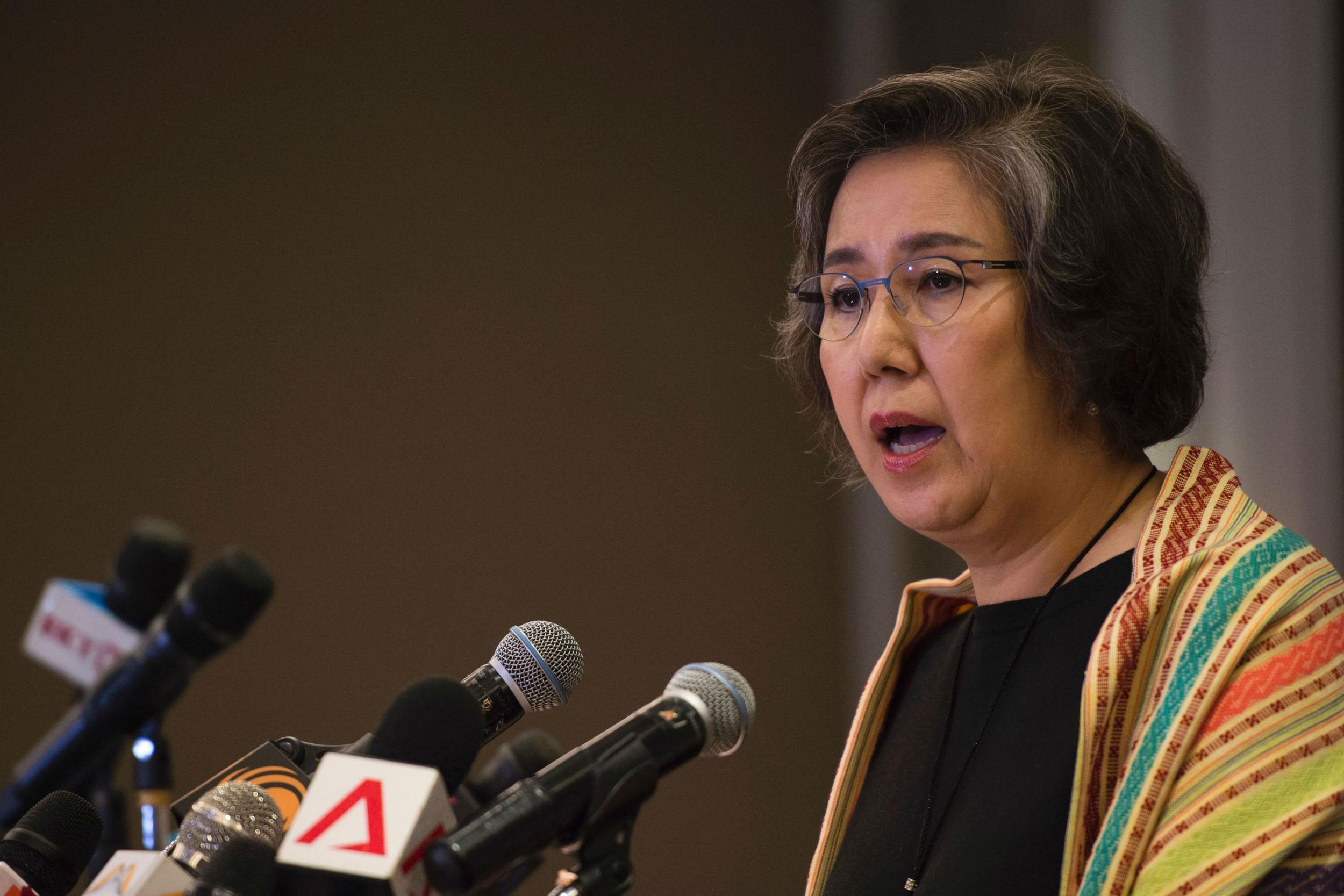Burma bans UN human rights investigator from probing anti-Rohingya atrocities
Up to 650,000 Rohingya have been forced from the country
Your support helps us to tell the story
From reproductive rights to climate change to Big Tech, The Independent is on the ground when the story is developing. Whether it's investigating the financials of Elon Musk's pro-Trump PAC or producing our latest documentary, 'The A Word', which shines a light on the American women fighting for reproductive rights, we know how important it is to parse out the facts from the messaging.
At such a critical moment in US history, we need reporters on the ground. Your donation allows us to keep sending journalists to speak to both sides of the story.
The Independent is trusted by Americans across the entire political spectrum. And unlike many other quality news outlets, we choose not to lock Americans out of our reporting and analysis with paywalls. We believe quality journalism should be available to everyone, paid for by those who can afford it.
Your support makes all the difference.Burma has banned a UN special investigator on human rights from visiting the country, triggering widespread condemnation and raising new concerns about its apparent refusal to address allegations of ethnic cleaning of a Muslim minority.
Yanghee Lee, UN special rapporteur, was scheduled to visit in January and prepare a report on human rights issues across the country, including the alleged torture and killing of Rohingya Muslims. At least 600,000 have in recent months fled or been forced into neighbouring Bangladesh, in what the UN has described as a “textbook case” of ethnic cleansing. Thousands are said to have been killed.
After the authorities in Naypyidaw announced they would not cooperate with her visit, Ms Lee called on the international community to exert more pressure on the Burmese government, whose de facto civilian leader is Aung Sang Suu Kyi.
“From what I see right now I’m not sure if they are feeling pressured. I’m not sure if there is the right kind of pressure placed on the military commanders and the generals,” she told Reuters.
She said she was alarmed that Burma, a Buddhist-majority nation, was being supported so strongly by China, which has a veto at the UN Security Council in New York. Other countries, including the United States, and human groups were advocating targeted sanctions on the military, she said.
“It has to work. And I’m sure the world has to find a way to make it work. And I think the United Nations and its member states should really try to persuade China to really act towards the protection of human rights,” she said.
Burma has been on the receiving end of criticism since August when the Rohingya Muslims started making their way to Bangladesh to avoid what they said was a campaign of rape, murder and terror by the Burmese army. The army said it was responding to attacks by Rohingya militants.
The Rohingya have long been discriminated against in the country and this was not the first time they had been forced to flee. Yet their flight was never in such numbers; some reports suggest up to 650,000 may be sheltering in Bangladesh as the governments of the two nations try to broker a deal for some of them to return.
Ms Suu Kyi, a Nobel laureate who was freed from almost 20 years of house arrest in November 2010, has rejected international criticism of the attacks on the Rohingya, disappointing activists around the world who for decades had supported her democracy struggle. The overwhelming majority of Burmese do not consider the Rohingya to be citizens and instead claim they are illegal migrants from Bangladesh.
Ms Lee has been unrelenting in her criticism of what is happening in Burma. While it had been transitioning towards democracy, the military retains a number of seats in the parliament and controls several of the most powerful government ministries.
Ms Lee said she believed the decision not to cooperate with her was a strong indication that there must be “something terribly awful happening” throughout the country.

“They have said that they have nothing to hide, but their lack of cooperation with my mandate and the fact-finding mission suggests otherwise,” she said.
She said she was initially told the Burmese authorities would cooperate with her, only to learn they have changed their decision.
“Now I am being told that this decision to no longer cooperate with me is based on the statement I made after I visited the country in July,” she said.
Speaking at the UN General Assembly in New York earlier this year, she said while many facts remained unclear, “what is undeniable is that hundreds of thousands of Rohingya Muslims have fled to Bangladesh from northern Rakhine and that hundreds of their villages have been torched and burnt down since the alleged attacks by Rohingya militants on 25 August”.
She added: “I have found events of past weeks devastating. The reports of villages in northern Rakhine that have been torched and destroyed are of villages that I had personally visited. The people reported to have fled must have included those I have met in my past trips.”
Burma is also facing international criticism for its detention of two Reuters reporters, Wa Lone and Kyaw Soe Oo, who were held while investigating a mass grave in the Inn Din village near Maungdaw, one of the areas most affected by anti-Rohingya violence.
Police say they are investigating whether the duo violated the Official Secrets Act. Mr Lone’s wife, Pan Ei Mon, told the BBC she was worried and saddened by his arrest.
She said he had a passion for journalism, adding: “His job is his first priority. He doesn’t take sides when writing stories.”

Join our commenting forum
Join thought-provoking conversations, follow other Independent readers and see their replies
Comments